Explore powerful real-life
stories of recovery.
Everyone's story is different.
Different supports work for different people, and no two journeys to recovery are the same. Watch people from BC tell their own stories of addiction and recovery.
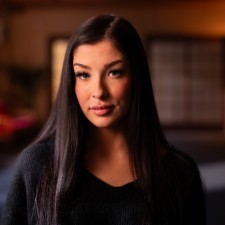
“Recovery and getting clean isn't a one-size-fits-all method.”

“Recovery and getting clean isn't a one-size-fits-all method.”
“Growing up, I was definitely a good kid,” Olivia says. “I did beauty pageants. I did competitive cheerleading. I did well in school.” But when she started using drugs and alcohol in high school, things started to change. “It was fun at first,” she says. “It was a social thing…the spiral was so quick. Within about four years it was a problem, and I was super, super lost.”
When she was 21, her parents encouraged her to enter a treatment program. “It was the first actual try I had at recovery,” she says. “I had gone to support groups before—it really wasn’t for me. Everything went downhill. I went to rehab and that still wasn’t enough for me. However, it definitely kept me alive.” And it gave her the chance to try again.
“When I first got clean,” she says, “I remember telling myself one year—I’m just going to try this for one year. So I did one year of being clean and my life just got so much better. It's incredible, especially when I look back to where I was at five, six years ago--I have an amazing job today. I have a relationship with my parents who trust me and love me. I have an amazing partner who supports me. I have best friends in my life. I'm exceeding at my job. I'm in school. I have an apartment that I pay for myself and I live there alone and it has a lock on the door and it's safe and I have a car—you know, we take those things for granted, but when I think when you go through the journey of getting clean, getting sober, whatever it is, those things just mean so much more.”
“Recovery and getting clean isn't a one-size-fits-all method,” Olivia says, “and it's so important to have different avenues for people that work. I know in my case, if I didn't have the opportunity to go to treatment, I'd be dead. If I didn't have the opportunity to attend meetings, I'd be dead. If I didn't have the opportunity to do sober living I wouldn't be here. Try everything and support people no matter what their journey looks like."
Learn more about mental health and substance use resources for women in BC.
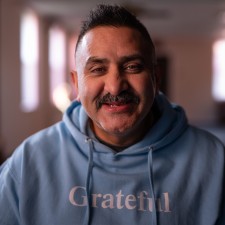
“We don't have to do this alone. We do this together.”

“We don't have to do this alone. We do this together.”
“I tried lots of things,” Mike says, about his recovery journey. “For 20 some years, I tried to quit. I tried moving. I tried abstaining certain days. I tried limiting. I tried budgeting. I tried changing substances… I tried every little thing you could possibly try, and nothing seemed to work for me. I had to go to treatment to get some clarity.” That clarity helped him find supports that worked—and helped him understand he didn’t need to do it alone.
“The key is for me was I always thought it was up to me to get clean. If I really wanted to get sober or clean, it was up to me. I thought ‘No one can do this for me.’ And that's the biggest lie out there. We don't have to do this alone. We do this together.”
“There's no one way to recover,” Mike stresses. “There's so many ways to recover out there. There's other people that have done it, and so we don't need to reinvent the wheel. My biggest problem in the 21 years that I tried to battle it alone was that I tried to battle it alone. I thought I was smart enough to outsmart it and that I could figure this out. I should be able to figure this out, and if I can figure it out, then I don't have to have that shame of telling everyone that I'm an addict instead of saying, Hey, you know what? I need help.”
“The biggest thing that I could suggest to anyone is just reach out and ask for help. And when you reach out and ask for help, actually take the help. Be honest, be open-minded and being willing—those were probably the three biggest keys that led me to get some time together. You don't have to do this alone.”
"I feel I live a very good life today, and I feel my mom's super proud of who I am today, and I feel every other Indo-Canadian could have the same."
- The Roshni Clinic provides substance use support for South Asian adults in Fraser Health region, including intake, assessment and treatment.
- The South Asian Health Institute aims to help South Asian people in the Fraser Health region seeking mental health, substance use and harm reduction services and support. Toxic drug crisis resources are also available for free on their website.
- The South Asian Community Hub provides counselling and addiction treatment.
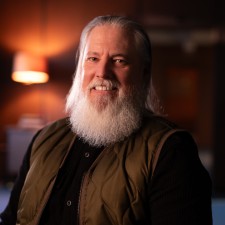
“I believe personally that everybody can recover from active addiction, provided enough support.”

“I believe personally that everybody can recover from active addiction, provided enough support.”
“A day in construction is like, Monday is tough enough, but by the time you get to Friday…at that time of my life, I was working six, seven days a week. In some ways you're proud of it because of the community you're with, but it doesn't take the pain away. It doesn't make the struggle less. There's still heavy things to lift. The weather is still going to beat on you. You're still going to find it very challenging. When I first entered the industry, I was young, I was 19 years old, I had a lot of stamina naturally, and I was very excited to be there. And then as the novelty wore off, it gets to be a real struggle. Instead of trying to stay awake at a desk, you're trying to move yourself to keep moving that lumber all day and stay bent over building walls or putting up that concrete or whatever it may be.”
“Some of the lessons I learned from my youth of being a tough guy and some of the stuff that was instilled in me in the construction industry led me into this place where I couldn't say no to things. And I was like, yeah, I'm the problem solver. I'm the guy that gets things done. I'm the leader. Put it on me, put it on me. And then my drug use really shifted at that point where it became less about blowing off steam and more about medicating myself to get through that stuff.”
“And then as the drug use got worse and worse, my situation in life got worse and worse. I started failing at work. The challenge is I didn't know what was me failing and I had no understanding of what was the drugs and my lifestyle.”
Trevor was able to reach out to his mom for support, and she helped him get into recovery.
“These days, I feel pretty good about myself, honestly. I'm really proud and I love myself through recovery. I think like a lot of addicts, we get into this real growth mindset, and I really loved the science behind who I am. I loved the understanding of psychologically where some of this trauma came from and what my response to it was. And I loved learning about that. We are such complicated creatures and we all suffer from the same ailment. We're human.”
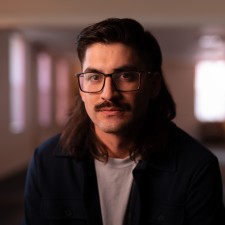
“Through recovery, I've been able to reconnect with culture and find my identity.”

“Through recovery, I've been able to reconnect with culture and find my identity.”
“Connection has been essential in my recovery, as well as everyone else's,” says Remy. “Without it, it's not possible. We rely on others for help and for guidance in recovery. It's not a path that's walked alone.”
For a long time, that kind of connection was missing from Remy’s life. “My mom was part of the 60s Scoop,” Remy says. “She was taken away from her family. And so, I didn't grow up in my own culture, and neither did my mother. I really didn't know who I was, or I felt like there was a piece missing of me. Through recovery, I've been able to reconnect with culture and find my identity, and find out who I am and what it truly means to be an Indigenous person.”
“Cultural teachings have a lot of similarities to the teachings in recovery,” Remy reflects. “Connectedness and oneness, giving and being of service. Taking care of one another. Speaking with Elders, there's always these coincidences where it's like, ‘oh, I heard that in treatment.’ And it's just the wisdom of an Elder. It's been a really special journey to be able to get to know my culture and participate in it. If I was in active addiction, I would never be able to participate in culture like I can now. And that's just one of the beautiful gifts of being in recovery.”
“I didn't really think I stood a chance. And I didn't even feel like I deserved to live a better life. Then I got into recovery and had a couple months sober, and I was feeling really good, and I was like, alright, I get the second chance at life. And I didn't really know why--it didn't make sense. I still felt like I didn't deserve that. And I was like kind of like, alright, what's the point of all this? Why am I alive?”
One answer came from a happy phone call. “My sister Emily supported me through thick and thin, and she was super crucial in my recovery. When I was in treatment, I found out she was pregnant with her firstborn. I remember just pouring tears of joy. And soon as I was off the phone, I went and told everybody that I was there with. It was so exciting. And I remember feeling so grateful that I would be able to be there for her and her firstborn.”
Passing on that connection to the next generation is important to Remy. “My nephews won't ever have to see me in addiction. That cycle ends with me. Emily’s children are going to have every opportunity in their lives. And one day, when I have children, they're going to have every opportunity. They won't have to go through the things I went through. They're going to know their culture. They're going to know their ancestry. They're going to know who they are. I’m going to make sure they're connected and they don't have to see violence or abuse or drug use. That's super special to me, because it kind of all started with my story.”
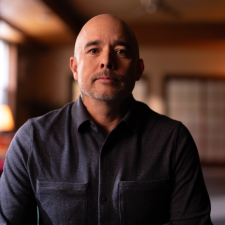
“I think everyone, in order to find recovery, needs to trust in some sort of community.”

“I think everyone, in order to find recovery, needs to trust in some sort of community.”
“I remember a specific moment,” Paul says. “It was on Christmas Eve, and I was, at the time, working at a shelter for homeless youth. And I remember walking to work-- it was eleven o'clock at night, and I remember hearing families and households being together, enjoying each other’s company. And I remember just feeling so disconnected from that. And at that moment, it just felt easier to continue on with my addiction.” Far from his friends and family, Paul felt isolated and alone.
But something changed. “I'd run out of good ideas, is what happened,” says Paul. “I got out of my own way.” He decided to try asking for help. “It was probably the hardest phone call I'd ever made. But when I think of what happened after I made that phone call…there was this stranger on the other end of the phone, he told me to meet him at a coffee shop in Chinatown in Victoria, and I did. And I remember seeing this man who just had this sense of integrity.” The man Paul met with introduced him to Narcotics Anonymous, where he found the support he needed to begin his recovery.
“I used to think it was cookie cutter,” Paul says, looking back. “I used to think that the only way for somebody to stay clean was to commit to the process of a 12-step program. Today I've learned that it's different for everybody. I think everyone, in order to find that recovery needs to kind of trust in some sort of community,--but it doesn't necessarily have to be a 12-step community.”
After many years of committing to the 12-step process, attending meetings, working the 12 steps with a sponsor and becoming a sponsor himself, he was then able to connect to other communities in many different ways.
“I was actually thinking about that word, ‘community,’ today, because at first it was a community of Narcotics Anonymous that showed me how to live a new life and how to get right with myself, others and a higher power. But from there, my life has expanded in different ways. So now that I've got a family, my communities are a little bit different. I've got a gym community now. I've got a trail running community now. It's such a huge piece in terms of the process of changing one's life—you need a community to support you through it.”
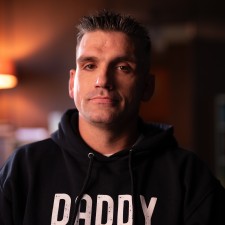
“It's about just kind of meeting people where they're at and just talking to 'em and showing 'em that you care.”

“It's about just kind of meeting people where they're at and just talking to 'em and showing 'em that you care.”
“I've been trying to get clean since I was 14. I'm turning 37 on Sunday. And my biggest problem I had was that I thought I could do this on my own.”
After his son was born, Brandon decided he had to make a change. “I realized this time, I'm like, okay, it has to be different. It has to be different. So how's it going to be different? Instead of doing all the stuff that I would do in the past, I'm going to change that. I'm going to be more focused on trying to build relationships with people and getting involved in service and helping others.”
Part of that service is through his work in harm reduction for Vancouver Coastal Health. Another part is through showing others how to have fun and build community while living in recovery.
“For me a big thing was baseball. I played in a recovery league, and I also played in some other leagues as well. And it changed my life. It gave me a sense of belonging. I felt part of a community. I made some forever lasting relationships with people that I truly cherish. You know what I mean? And it also gave me the opportunity to get other people involved.”
“I'm like, listen, this will change your life. They’re like, how is baseball going to change my life? I'm like, it's not the baseball part. It's having all these people, being accountable, showing up for your team and being part of something. All these things that you're doing when you're playing the game, if you implement it in your life, life's going to get better.”
“Growing up, my dad was in and out of my life, same with my mom. I played baseball when I was a kid, and my dad never came to my baseball games--he'd tell me he was going to come and not show up.” These days, Brandon’s dad is in recovery too—and he comes to all the games. “Even though I'm an adult now—getting him to come to my baseball games, I don't even really think he knows how much of an impact it had.”
Brandon is committed to being the best possible dad for his own young son. “I would not change it for anything, anything. Just getting to sit there and I watch him do stuff—he loves dinosaurs, he has these big dinosaurs and he chases our dog around going ‘rah’ and doing all these things. There's no feeling like it. I would never want to miss those moments. And he gets to see the best me, and I get to be the best dad I can be for him no matter what.”
“It's about building those memories and having memories with my son that I didn't get to have when I was a kid. You know what I mean? And it's awesome.”
Find supports
that work for you.
Help looks different for everyone. Find free or low-cost services to treat addiction and support mental health.
There are no one-size-fits-all solutions. Learn more about addiction, treatment and recovery.
It can help to know where to start. Learn more about youth prevention and early intervention supports.
BC is experiencing a toxic drug crisis. There are ways to reduce the risks when you use drugs. Learn more.
It can help to know where to start.
Living with addiction is not easy, but there are people who can help. Treatment and recovery can look different for everyone, so it helps to know what supports are available. Find what helps you at HelpStartsHere.gov.bc.ca.